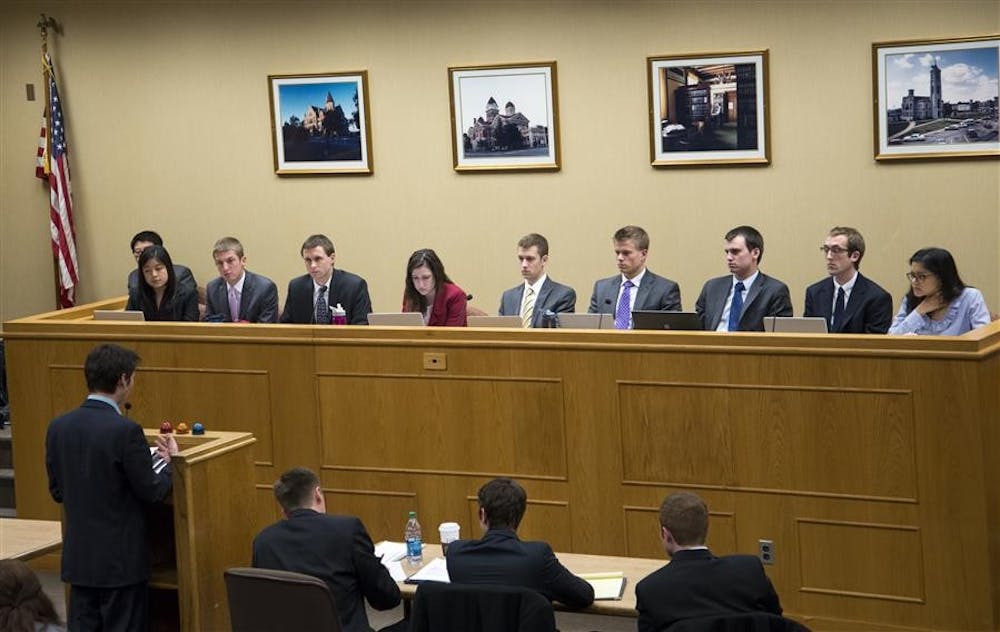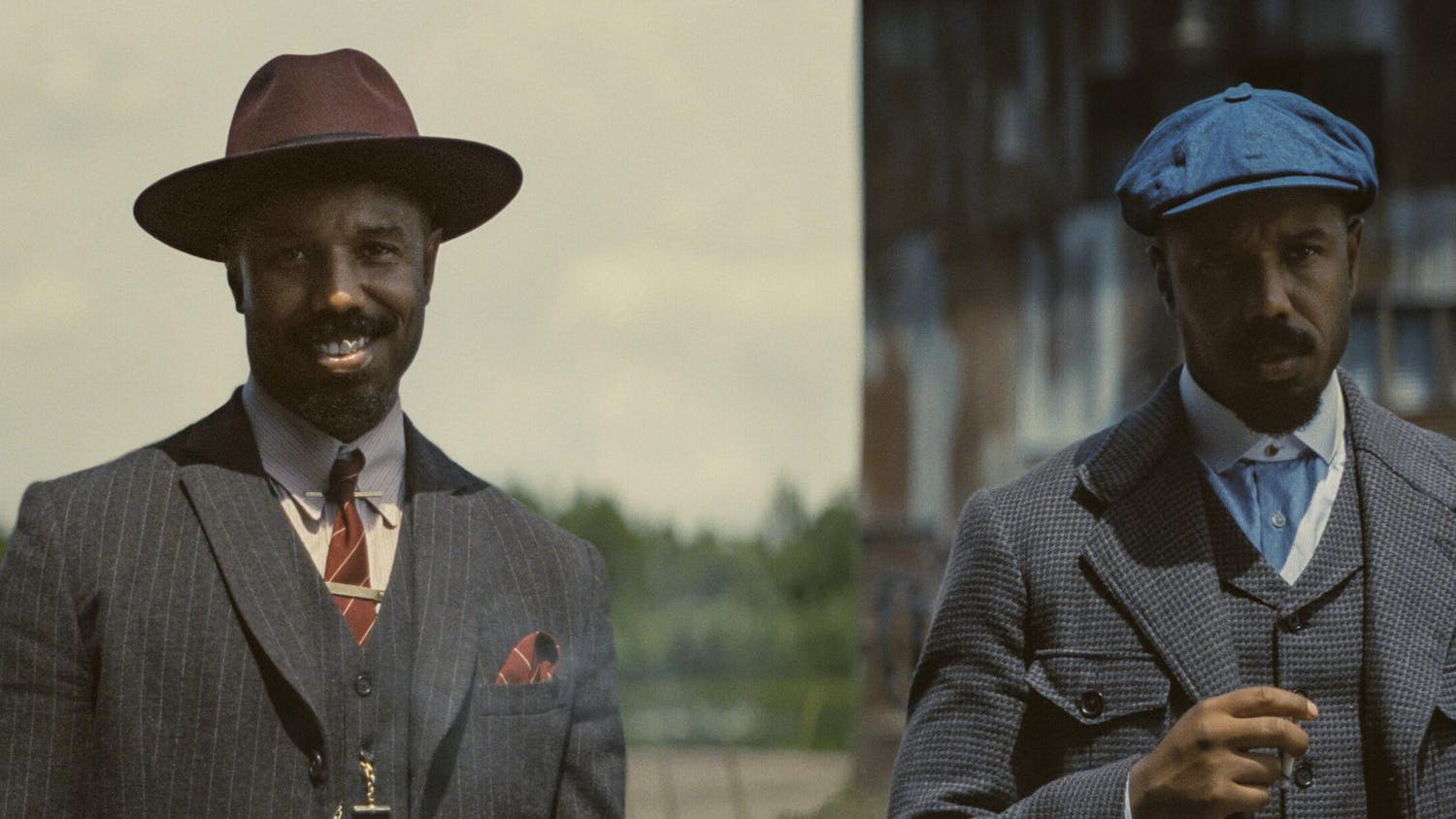Update: Early Thursday morning, the IU Student Supreme Court issued a ruling in favor of SPARC for IU, allowing the ticket to remain on the IU Student Association election ballot.
After a public hearing Wednesday night to hear evidence in the case of SPARC v. Election Commission, the IU Student Supreme Court will take up to 48 hours to decide whether SPARC will be allowed to continue in the IU Student Association election next Tuesday and Wednesday.
SPARC presidential candidate Sidney Fletcher drew on the decision of the Crimson v. Big Red case following the 2004 IUSA election, which said the court should “hold the candidates for the IUSA elections to high standards.”
“What we ask today is that the Student Body Supreme Court be willing to hold the IUSA election commissioners to the same standards,” Fletcher said Wednesday night.
The IUSA Election Commission ruled March 20 that SPARC would need to withdraw from the race after vice president for congress candidate Thomas Dauer removed his name from the ticket, according to an Election
Commission statement.
The 11-member court granted a preliminary injunction, which allowed SPARC to participate in the election debate March 21 and continue campaigning until a final decision could be reached.
The SPARC ticket claims Election Commissioner Melody Mostow violated a portion of the Election Code that requires the commission to issue advisory opinions interpreting the code.
Fletcher said SPARC candidates requested input from Mostow before Dauer officially removed his name from the ticket. Fletcher said Dauer had expressed a willingness to continue as a member of the ticket and serve the student body if the alternative would be the disqualification of SPARC from the election.
The IUSA Bylaws allow for an elected executive to step down, and for a replacement.
No advisory opinion was given, although in a response to SPARC’s petition issued by Election Commission, Mostow wrote, “I was never asked explicitly for an ‘advisory opinion,’ and it was not until I was accused of violating the code by not giving one that I even learned what the definition of an ‘advisory opinion’ was.”
Election Commission member Evan Farrell, who spoke on behalf of Mostow while she was out of town, said there was never a request for an advisory opinion.
“We saw it as there needed to be really extenuating circumstances,” Farrell said. “Not just my heart’s not in this.”
The Election Code requires tickets to include all four executive positions. After Dauer withdrew, Farrell said, the commission viewed it as an unformed ticket.
He said SPARC would have an unfair advantage by being able to replace members of the ticket after the other tickets had completely formed.
But Justice Alicia Nieves raised the issue that the code could be interpreted such that a complete ticket must include four executive candidates, without respect to if they are replaced or not.
Ultimately, the court will rule on an issue that is unclear in the existing Election Code.
Supreme Court begins SPARC trial

Get stories like this in your inbox
Subscribe





